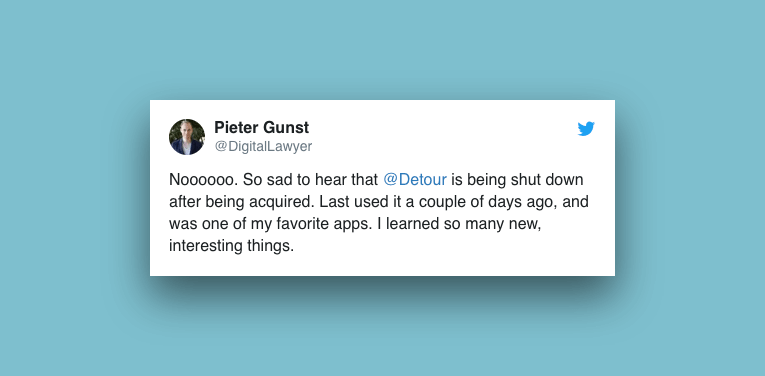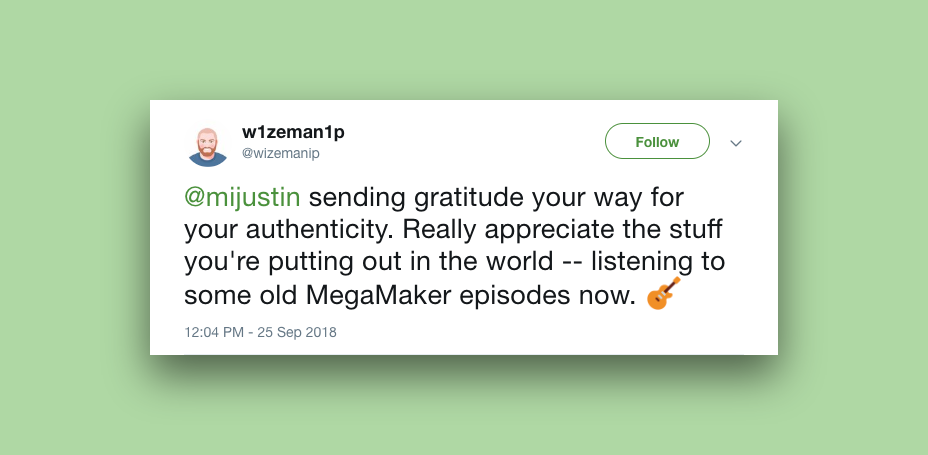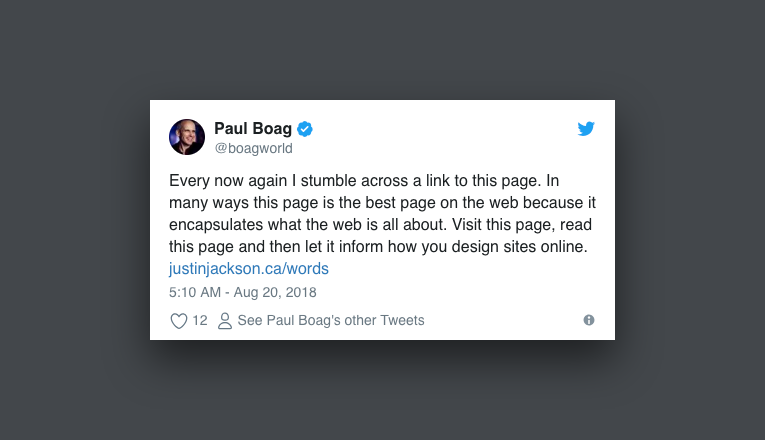Do you even want to be "a bootstrapper?"
I had most of today's article written on Tuesday.
But in the evening, I started chatting with Adam Wathan. And that chat changed my plans.
It started when I said:
Is my #1 goal in life really to "build software?" To be a "bootstrapper?"
Adam replied:
Nah, it's probably: "make awesome stuff people are happy you made, and get to do it without stressing about money."
I like this. It's easy to get consumed by what we're doing and forget why we're doing it. We lose sight of our purpose.
Most of us aren't in this game to get a bigger paycheque.
Instead, we're looking to find:
Purpose: "Make awesome stuff people are happy we made."
Means: "Do it without stressing about money."
We desire this as users as too. It's why we rail against the cycle of "startup build a product we love, only to get acquired and shut down."

When we discover something awesome, we want the good work to continue.
"Supporting the work" is what Paul Jarvis wants to enable on Pico; a platform where readers pay writers monthly.
"Supporting the work" is why I buy Tracy Osborn's books, support Freek on Patreon, and back MxPx's Kickstarter. It's why I happily pay for Gravity Forms, Screenflow, and Descript. I'm glad that folks have made these things. I want them to keep going!
How to figure out what's worth pursuing
At some point, every creative person has an identity crisis. We stress over the question:
Am I working on the right thing? Who is this for? What is this for?
Here's how to answer that question: review your past creations, and look for the trends.
You can do this by asking yourself:
"What have I made that people were happy I made?"
"What work elicited the most positive responses?"
"What patterns can I see in terms of who my work is for, and how it helps them?"
This questioning is a great filter for determining what work is worth doing.
An example
When I ask myself "what have I made that people are happy I made?" my list looks like this:
The podcasts I've hosted (or been a guest on)
The writing I do on this newsletter, my blog, and Twitter
Publishing books and courses like Marketing for Developers
Speaking and MCing at MicroConf and Laracon
Creating the MegaMaker Club
Building Transistor with Jon
How do you know if people are "happy" you're doing what you're doing? They'll go out of their way to tell you!


Now that I've written this list, I can answer these questions:
Who is my work for? The people who like my stuff are geeks: developers, designers, and creatives who like making things with computers.
What role does my work play in their lives? I'm encouraging geeks to make awesome stuff, get it noticed, and to earn more from what they make (and have fun doing it).
How do I do this? Through writing, speaking, video, podcasting, and fostering community.
Crafting your personal mission
Next, you can structure your answers into a statement like this:
I help _______ to ________, so that they can _________. I do this by ____.
For me, I'd put it all together this way:
I help geeks make awesome stuff on the web (and get it noticed), so that they can earn more (and have fun doing it). I do this by fostering community through my writing, speaking, videos, and podcasts.
My mission probably looks and sounds different than yours. That's good! It's also evolved over time (and will continue to evolve!).
Once you've defined your mission, it becomes a compass for your work. It helps define who you're helping, and what you're empowering them to do. The actual shape of the work (whether you're making software, videos, etc...) is less important.
Ok, so how do you get paid?
Whether you get paid to do creative work is dependent on two factors:
Who you're serving
How big of an impact you're making in their lives
"Who you're serving" includes their willingness and capacity to pay.
"The impact you're having on their lives" is your ability to execute on a solution that people want.
You got this. Trust the discovery process.
People support and pay for the good work they want to see continue!
Cheers,
Justin Jackson
@mijustin
Postscript:
I've never done this before: I'm trying Patreon for the first time.
If you'd like to support my writing, podcasting, and livestreams you can do that here:
Thanks to Adii Pienar (Conversio), Paul Jarvis, Jarrod Drysdale, Jason Shellen, Tim Smith and Adam Duvander for being my first patrons!